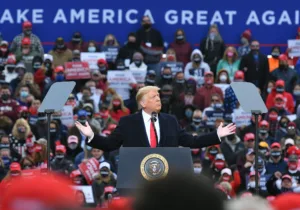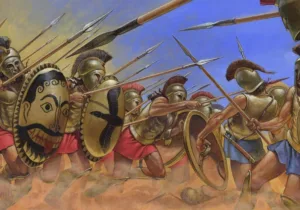Carl von Clausewitz, the famous Prussian general and military theorist, famously said that “war is the continuation of politics by other means.” Politics and war are intimately tied, and globalization increasingly obscures the line between the two. This blurring is quite apparent in what was the British colony of Sudan, now two countries that are engaged in a politicized feud. Even the most experienced diplomats struggle to understand this conflict, and they often make grand missteps while working to solve it. Typical tropes about “war for oil” or inter-tribal conflict fail to define the dispute’s complexities. However, Clausewitz’ observation can help the international community better analyze South Sudan’s predicament and develop a more effective strategy than the current one.
While South Sudan’s domestic politics and rivalries have led to a war at home, competition with regional adversaries has continued to spread on the global stage. Within its borders, Juba’s government is essentially fighting ghosts of the past, including tribalism and all the other divisions Khartoum promoted in their last war before the South’s independence. But as South Sudan shoots at ghosts who are foreign adversaries’ proxies, these enemies wage a different, less visible political war in Washington, DC, London, and at the negotiating table in Addis Ababa.
Recently, I had a conversation with a South Sudanese socialite. He, like many other young South Sudanese, is Western-educated and prides himself on objective thinking when it comes to politics. The country’s warrior mentality, forged during the brutal struggle with the Islamic Republic of Sudan, has served its purpose, and now the people want to look to the future with a fresh perspective. Simply put, the youth are tired of war. Their new mentality, although wholly positive, competes with remnants of the warrior mentality, which the government in Juba closely follows and the South Sudanese diaspora loudly echoes.
The young man asked a simple question: “Who provides Riek Machar funding?” A simple question, with an almost impossible answer. Machar, the former Vice President of South Sudan, has led an armed rebellion against the government since December 2013. He is under house arrest in South Africa and plagued with numerous ailments. Regardless, Machar appears to have access to vast funding from unknown sources. My friend continued, stating that “given all the possible rebel forces in South Sudan, Riek Machar has the least capacity to engage in an effective military campaign.” His question is poignant, and his sentiment accurate. By all accounts, Machar’s forces are disjointed and losing ground rapidly. Other rebel groups, like those led by Thomas Cirillo and Paul Malong Awan, appear to be more capable.
The nature of the war is shifting, and the South Sudanese government is struggling to adapt to the geopolitical battlefield’s new realities—those of the political war abroad. So, to answer my friend’s question, I posit that Machar receives funding not because he has a capable fighting force but because he has more international exposure than the likes of Cirillo and Malong. He can wield the power of the pen.
A cursory search of the United States’ Foreign Agents Registration Act (FARA) database shows that Riek Machar’s Sudan People’s Liberation Movement-In Opposition (SPLM-IO) organization has retained the services of DC lobbyist Joseph J. Szlavik and his firm Scribe Strategies & Advisors. Of further interest, Szlavik has received zero compensation from the SPLM-IO, even though his other clients appear to pay on average $80,000 every six months. Although speculative, it is no logical leap to believe that Machar’s camp has promised the lobbyist compensation in some other form should Machar regain power in Juba. Meanwhile, Szlavik, who has visited numerous Congressional, Administration, and think tank offices on behalf of the SPLM-IO, has recently been indicted for laundering money for the Gabonese ruling family. He brings new meaning to the phrase “devil’s advocate.”
Szlavik’s engagement alone, though, does not fully explain the depth of the geopolitical battle the government of South Sudan faces from global actors including the US, nor why the international community shows more warmth towards an indicted war criminal in the North than towards those who seek to be allies of democracy. Sudan, which the international community only recently re-embraced, profits significantly from instability in South Sudan. The only pipeline exporting oil from South Sudan runs through Sudan, enriching Khartoum with hundreds of millions of dollars annually from both the transportation and sale of refined petroleum product. Instability in South Sudan disincentivizes oil companies from investing there, keeps the crude flowing north, and prevents Juba from attaining true economic self-determination.
Sudan has spent vast sums on lobbyists in Washington, DC, and has doubtlessly done the same in London, Brussels, and other international hubs of power. The Islamic leaders fully grasp the geopolitical value of political “representation for compensation.” Their influence through these networks is vast and allows them to gain significant global momentum. Simply put, Sudan has purchased a voice in the international community. Like the South Sudanese rebels, it has a platform from which to speak and uses that platform to further its global and regional influence, often to the detriment of South Sudan.
South Sudan, plagued with internal issues, has failed to adequately represent itself and its interests to regional and global stakeholders. Its warrior mentality has prevented compromises with global partners, and relatively painless concessions to assuage the international community’s concerns have unnecessarily become points of great diplomatic conflict. Communications issues abound in Juba, with parties wasting precious time saying the same thing in different ways. Amidst the noise of internal squabbling, the consequences of a failed foreign policy strategy are beginning to manifest rapidly.
South Sudan is not an uneducated nation, nor does it lack in entrepreneurial spirit. It is a nation of hope and a country full of intelligent people finding solutions for often impossible problems. The motivated diaspora is eager to return to a stable South Sudan and contribute to its growth. South Sudan is, however, fighting the wrong war. The conflict is no longer in the bush but in the halls of power abroad. If absent from those halls, Juba cannot defend itself from accusations that are more detrimental to it than the ghosts it is fighting.
Though it is a common suggestion from those unable or unwilling to see the difference between the government and the rebels, power change in Juba is not the solution for the myriad problems plaguing the country. Instead, Juba should enable ethically sound government officials to communicate more effectively with their global stakeholders and counterparts. The government should revise and renew its foreign and domestic policy strategy so that the international community is comfortable assisting South Sudan in developing opportunities for economic growth for both the country and her people. Despite the increasing skepticism of South Sudan’s ability to achieve a lasting peace, the international community remains willing to work towards a sustainable solution.
The South Sudanese dream of education, peace, jobs—not war. It is the responsibility of the government of South Sudan and the international community to communicate with the intention of making those dreams a reality. In particular, rather than shooting at ghosts from the past, the government should once again look to those such as the nation’s church and community leaders who led the efforts for repentance, forgiveness, and reconciliation that united the people against Sudan’s “divide and conquer” strategy. Through their help and collaboration, South Sudan should build, execute and make public a genuine foreign policy. Through these efforts, South Sudan could genuinely be one nation and exorcise the ghosts of the past once and for all.
—
Marcus Riley lives and works in Juba, South Sudan, as a political consultant and advisor. He is not affiliated with any government, nor is he hired by any government to lobby or provide services that may fall under the United States Foreign Agents Registration Act. His analyses and thoughts are his own.
Photo Credit: View of Nile River near Juba, South Sudan.






 Sponsor a student for Christianity & National Security 2024
Sponsor a student for Christianity & National Security 2024